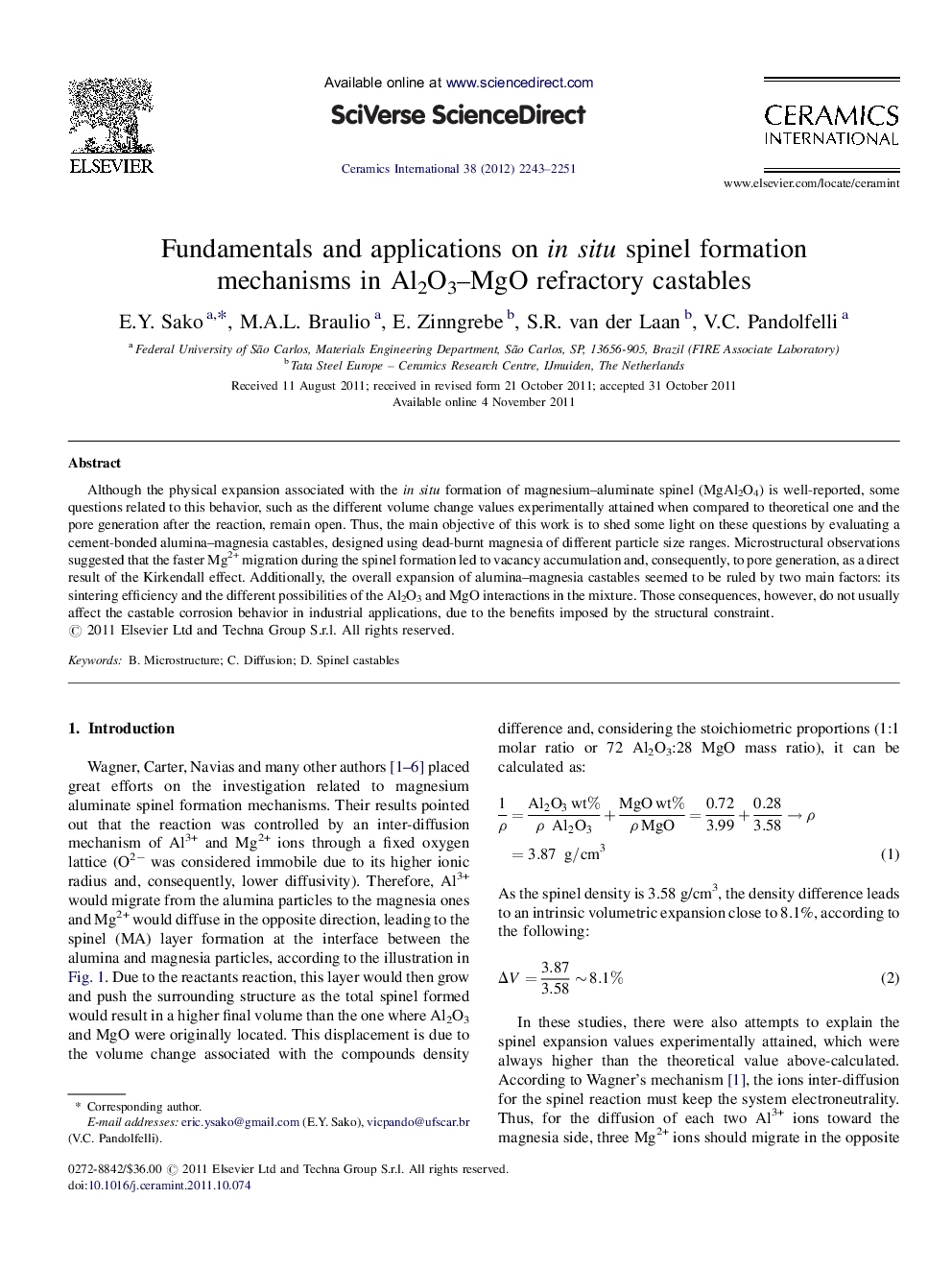| کد مقاله | کد نشریه | سال انتشار | مقاله انگلیسی | نسخه تمام متن |
|---|---|---|---|---|
| 1464239 | 989658 | 2012 | 9 صفحه PDF | دانلود رایگان |

Although the physical expansion associated with the in situ formation of magnesium–aluminate spinel (MgAl2O4) is well-reported, some questions related to this behavior, such as the different volume change values experimentally attained when compared to theoretical one and the pore generation after the reaction, remain open. Thus, the main objective of this work is to shed some light on these questions by evaluating a cement-bonded alumina–magnesia castables, designed using dead-burnt magnesia of different particle size ranges. Microstructural observations suggested that the faster Mg2+ migration during the spinel formation led to vacancy accumulation and, consequently, to pore generation, as a direct result of the Kirkendall effect. Additionally, the overall expansion of alumina–magnesia castables seemed to be ruled by two main factors: its sintering efficiency and the different possibilities of the Al2O3 and MgO interactions in the mixture. Those consequences, however, do not usually affect the castable corrosion behavior in industrial applications, due to the benefits imposed by the structural constraint.
Journal: Ceramics International - Volume 38, Issue 3, April 2012, Pages 2243–2251